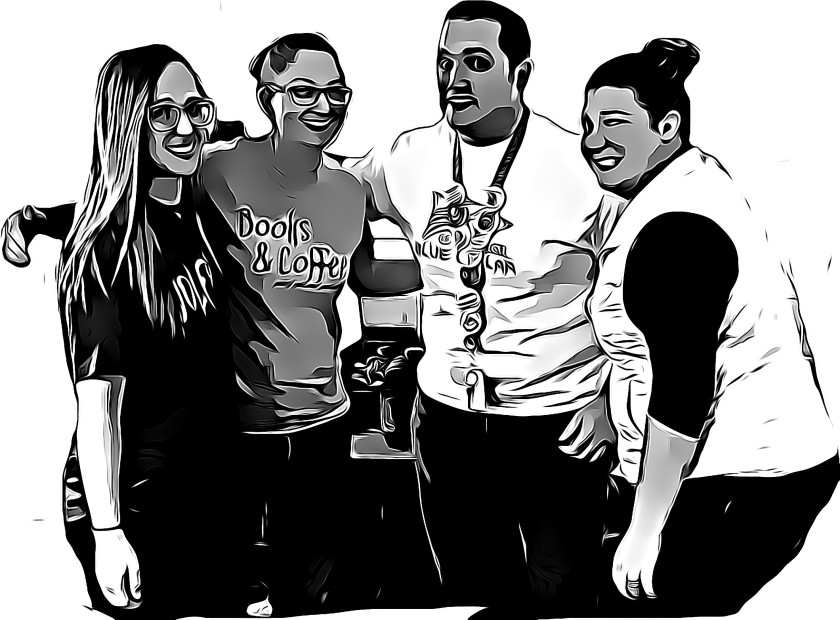Other people’s birthdays are important to me. This is strange because I hate my own. Not that I wish I was never born, but I always have high expectations that are rarely met. I’ve had three exceptional birthdays. My 16th birthday barley makes the cut, but that’s only because my mother forgot. I’m not mad at her though, she barley remembers my name. I guess that’s what having four kids will do to you. My 18th birthday was absolutely amazing! My high school chorus class sang happy birthday to me, my principal called me into his office to tell me happy birthday, and my AP Lang. class threw me a Wizard of Oz themed birthday party, because I had never had a birthday party before. It was no doubt a… pity party. But for me, it was a party nonetheless. My last favorite birthday was my most recent one. My closest friends, all 6 of them, travelled through a Georgia snow storm for me. What started as a sleepover at my apartment turned into a semi-onesie, hotel, sleepover. They brought pizza, cookies, chips and dip, beverages, and a birthday cake! We lounged around, listened to music, watched movies, and talked. It was nothing big, and I wouldn’t have had it any other way. These are the only birthdays where I’ve felt the most special. That’s why for me, I want to try to make everyone else’s birthday special. As a future educator, I’m always excited to find out when my students birthdays are and write it in my calendar. I’m still trying to figure out if that makes me a creep or not. However, it’s been harder to keep track this semester, but nevertheless, I remain persistent. 
*
I remember he dressed very nice that day. For a 16-year-old male, Matt has impeccable taste. I sometimes want to ask him to style me, but I find that far too weird and inappropriate. I almost said to him, “You look really dapper today. Is it your birthday?” For some strange reason, whenever someone looks really nice, I always associate that with it being their birthday. The one day when it actually would have been someone’s birthday, I don’t ask. Instead, I walked away after answering his question. The very next day, one of his friends looks at me and says, “Anne, it was Matt’s birthday yesterday!” I turned to Matt saying, “It was your birthday yesterday?!” He nodded shyly. My voice got a significantly squeakier as I said, “Well, why didn’t you tell me?” He shrugged. “You know what we have to do now, right?” His face immediately turned a flushed red as if he knew exactly what we had to do. “We have to sing you happy birthday,” I said ecstatically. I made my way to the front of the room saying, “I need your undivided attention please! Today is a very special day…” I paused for dramatic affect. “Today is Matt’s birthday! So, let’s all sing Matt happy birthday! One. Two. Three.” The entire class roared the happy birthday song to the point where my Collaborating Teacher had to shut the door. I’d like to think that this was a special moment for him. I’ve realized in the short amount of time I’ve gotten to know my students that I can’t give them much. But what I can do, and what I will always strive to do my final weeks left, is make my students feel…undeniably, undoubtedly, special.




 This week, I had to stay after school with a student that really drives me crazy in class. Brad is a student that knows he can’t miss more than 10 days in a row, or he’ll be withdrawn from school. So, Brad is the kid who misses 9 days, comes in for 2, and misses 9 more. In class, Brad doesn’t participate, doesn’t listen, doesn’t do work. And Brad distracts others. I keep thinking to myself, “this kid is a jerk on purpose.” My CT felt the same way.
This week, I had to stay after school with a student that really drives me crazy in class. Brad is a student that knows he can’t miss more than 10 days in a row, or he’ll be withdrawn from school. So, Brad is the kid who misses 9 days, comes in for 2, and misses 9 more. In class, Brad doesn’t participate, doesn’t listen, doesn’t do work. And Brad distracts others. I keep thinking to myself, “this kid is a jerk on purpose.” My CT felt the same way.



